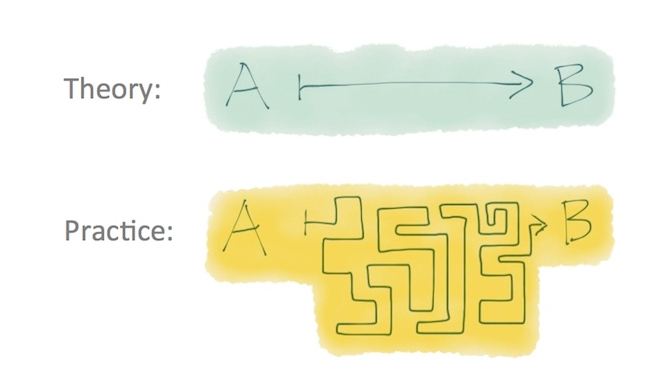Conceptual Understanding vs Memorizing : Learners across the world can be broadly classified into two types – one, people who learn to understand and two, people who learn to remember or recall. The people in the first category understand the concept, while the latter merely memorize the concepts to be able to recall it later. While memorizing helps commit to the memory, understanding the concept helps us gain knowledge and appreciate our education.
Why is conceptual understanding better than memorizing
In an attempt to understand which method of learning is better and why, we have listed down the differences between the two and their pros and cons:

When you understand a concept, you will remember it for years whereas when you memorize the same, you will remember it for merely for days and gradually forget it. Conceptual understanding helps you understand the information on a deeper level unlike memorizing which merely touches the surface.
Marketing concepts for instance, need to be understood to be able to apply practically. If you memorize marketing concepts, you might pass your exams but you won’t know how to apply them unless you understand the crux of the concept.
Another advantage of conceptual understanding is it helps you grow as a person and shift your perception. This is impossible with memorizing. When you understand concepts you are able to connect it with other concepts, compare it with other concepts and generate creative ideas and apply the concept to real life situations. Whereas memorizing won’t help you achieve any of this.
Suppose you’re in a Indian political debate. You will be able to successfully put forth your points if you know the relevance of the point you’re making if you have done your homework and understood the history of Indian politics. If you have merely memorized it, you will forget it sooner.
Memorizing is helpful if you want to recall information at a specific given time. Memorizing helps you remember concepts. Whereas if you understand a concept you will not only be able to remember it for long, but also put it in your own words whenever you want and also explain it to others. Memorizing limits the memorized content to ‘recall’, whereas understanding the concept helps in generating creative ideas.
Memorizing is helpful in passing an exam. But apart from that, memorization is not going to help.
As you can see, conceptual understanding is much better than mere memorization; as it helps you gain knowledge, perspective and grow. Understanding concepts will also help you apply that knowledge to real world situations. Whereas memorizing things will not help you in understanding any concept or retain it for a long time. We hope the above analysis will help you approach your studies in a better way.
While preparing for different competitive exams, students may feel stressed. So, here are 10 tips to beat your stress.
- Know what to expect: The exam syllabus can be vast and studying is a stressful activity requiring you to devote much of your time and energy. Therefore knowing what to expect in the exam will help you focus on topics that are most likely to appear in the exam. It’s a good idea to consult your mentor/lecturer to know what to expect from the exam.
- Manage your time: One of the most important requisites while studying for an exam is proper time management. Preparing a time table/study plan will help you break your syllabus down into chunks and avoid cramming. Make sure you follow your time table religiously to avoid last-minute panic.
- De-clutter your study space: One of the determinants for stress-free studying is the environment you’re studying in. Your study space needs to be comfortable and relaxing. Make sure your study space is well-lit and de-cluttered. Having an alternate study place can give you a fresh look at your study material and stay focused.
- Make notes: Noting down important keywords and key ideas can help you revise effectively. Start studying early and leave time to revise. Avoid mugging up!
- Reward yourself: Rewarding yourself after your study time will help you keep yourself motivated to continue studying and give you a sense of achievement.
- Why is The SSC CGL Called a Mini IAS?
- Important Number System Questions for SSC Exams, Practice Here
- Trigonometry Questions For SSC CGL 2025, Solve Important Questions
- How to Prepare for SSC CGL with Full Time Job? Get Complete Guide
- 40 Geometry Formulas PDF – Download Here
- Take a break: Take frequent short breaks while studying. Go outside, get some fresh air, meditate or go for a walk. According to psychology, the human brain can focus on one task effectively for a maximum of 45 minutes. Taking breaks can optimize your productivity.
- Eat well: Having a well-balanced nutrition is very important. It will help you concentrate better, avoid negative or irrational thoughts which can interfere with studying. Maintain a healthy well-balanced diet to avoid stress and focus better. Avoid overeating.
- Stay hydrated: Keep a sipper close to your study place and sip water regularly! An intake of at least 8 ounces of water per day is essential to keep you from feeling tired and sluggish. Beverages like coffee, tea, chamomile, peppermint and passionflower help in relieving stress and fatigue. Limit yourself to one or two cups per day.
- Get some exercise: Exercise is good for your physical and mental well-being and it non-negotiable. Aerobic exercise can help relieve stress and keep your anxiety at bay. Go running or hit the gym and be consistent with exercise.
- Get adequate rest: Lastly, get enough sleep to avoid fatigue and anxiety. Maintain a fixed sleeping schedule and get quality sleep.
This is all from our side in this blog. Stay tuned to Oliveboard!

The most comprehensive online preparation portal for MBA, Banking and Government exams. Explore a range of mock tests and study material at www.oliveboard.in
